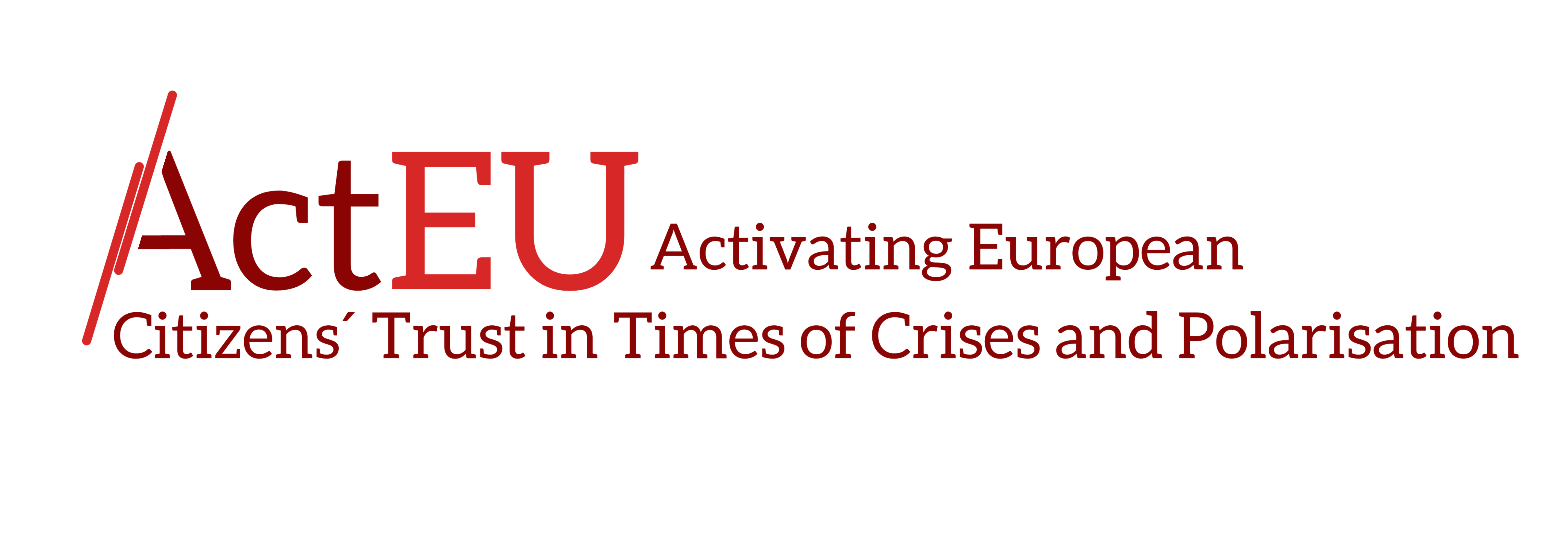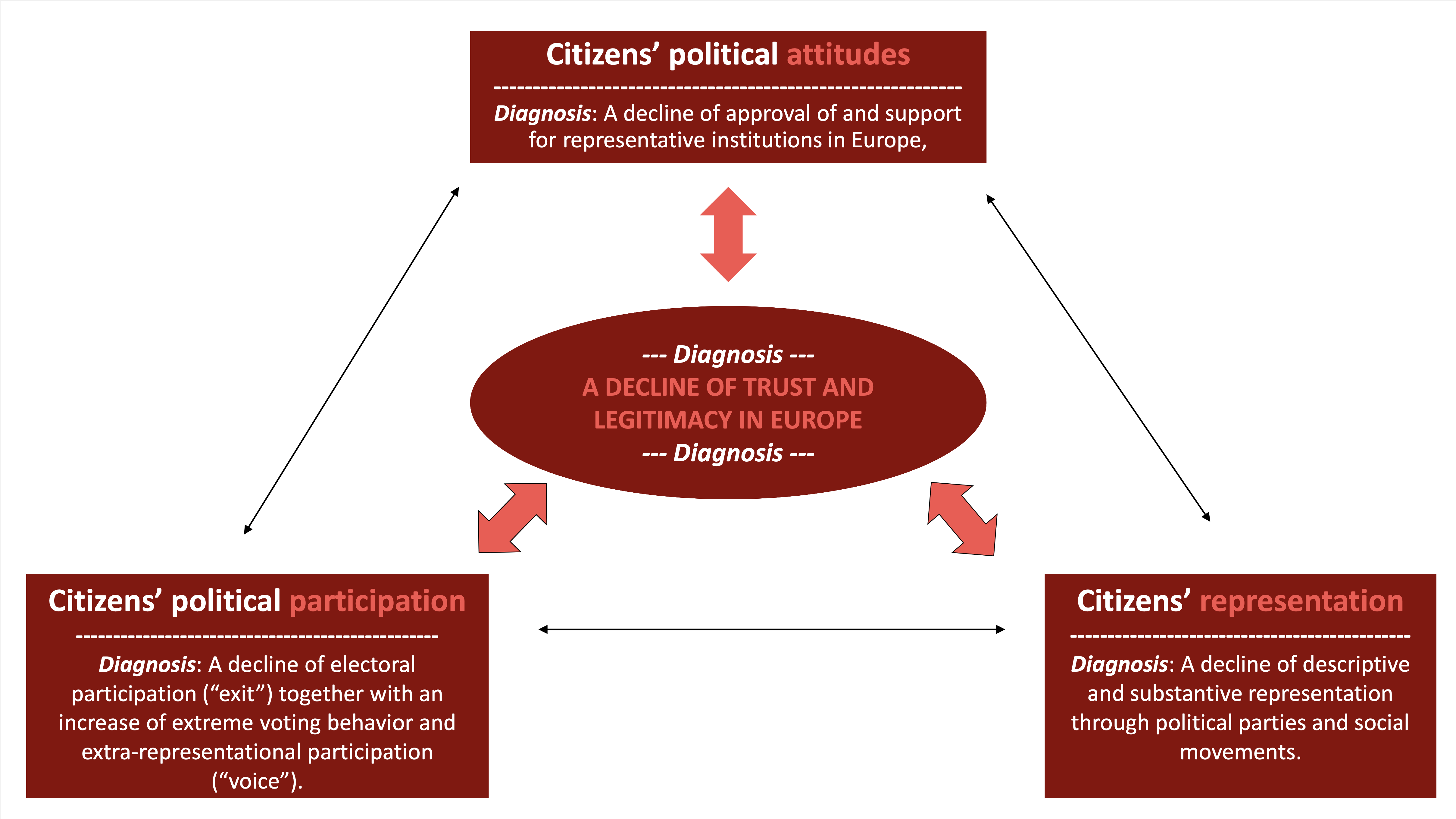ACTEU

Towards a new era of representative democracy – Activating European Citizens’ Trust in Times of Crises and Polarization
THE PROJECT
The ActEU project examines the decline in trust and political legitimacy in Europe, focussing on the interactions between citizen’s political attitudes, their political participation and the representation of their political preferences.
This 3-year project (March 2023 – February 2026) is funded by the European Commission as part of the Horizon Europe framework programme (Research and Innovation Actions). Its scientific approach is based on the following diagram:

OBJECTIVES
The ActEU project first aims at mapping and examing the continual issues of declining trust, legitimacy and representation in Europe. Particular attention is given to the polarisation of societies on key issues in our time – immigration, climate change and gender inequalities – and to the multilevel governance system of the European Union.
The research methods used range from descriptive analysis of series of public data (all EU member-states + other countries if necessary) to qualitative interviews with “focus groups” (Czechia, France, Germany and Greece), including quantitatives polls and “web scraping” techniques as well (Austria, Czechia, Denmark, Finland, France, Germany, Italy, Poland and Spain).
Based on these empirical results, the other main objective of ActEU is to develop an action toolbox (adapted to local contexts) to reinforce political trust and the legitimacy of European representative democracies. In cooperation with a recently created civil society network, the Youth Democracy Labs, in 13 European cities, and in partnership with the “Cartooning for democracy” political cartoonists, two toolboxes will be developed for (1) the European, national, regional and local political decision-makers, and (2) civil society and the education sector.
ESPOL is in particular co-leading Work Package 3 on “Citizens’ behavior: The changing patterns of citizens’ political participation”, that explores how variations of political trust affects political participation patterns, by focussing on the way citizens act (behaviour) and the way they perceive possibilities for participating (perception).
KICK-OFF MEETING
The first meeting of all ActEU partners took place on 28th March 2023 in the premises of Fondation Universitaire! TEPSA organized the internal meeting, where organizational topics as well as first content-related topics has been discussed. The focus was on the contents of WP 1 ‘Providing an infrastructure to assess the decline of political trust and legitimacy’ and the question ‘How do we plan to collect, integrate and apply the ActEU multi-methods approach?’

THE ESPOL TEAM
- Giulia Sandri, Associate Professor (Principal Investigator)
- Oscar Barberà, Visiting Professor
- Zixuan Gou, Project Officer
- Axel Gougelet, Administrative Officer
- Adrián Megías Collado, Associate Research Fellow
- Felix von Nostitz, Associate Professor – TEAM COORDINATOR
- Max-Valentin Robert, Postdoctoral researcher
- Ramon Villaplana, Postdoctoral researcher
PROJECT PARTNERS
Eleven organisations from across Europe comprise the consortium led by the Universities of Duisburg-Essen and Saarland (Germany): Trans European Policy Studies Association, Sciences Po (France), Åbo Akademi University (Finland), Paris Lodron University of Salzburg (Austria), Université Catholique de Lille (France), Sciences Po (France) , Universidad de Oviedo (Spain), Institute of International Relations Prague (Czechia), SWPS University (Poland), Aristotle University of Thessaloniki (Greece), Universitá Degli Studi di Trento (Italy).


